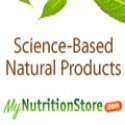What works for General Health?
Getting everything you need for optimal health from your diet is a great concept, but 80% of Americans don't even eat the recommended minimum 5 servings of fruits and vegetables a day. So supplements, starting with a high-quality multivitamin, are an addition most health experts recommend. What else is important for general health? Some of the most important supplements to add daily include Soy Protein to promote weight loss, heart and bone health, Calcium and Potassium for bone and heart health, and Spirulina and Colostrum for a healthy immune system.
Soy Protein: shown to promote weight loss, lower cholesterol, reduce the risk of bone loss and soothe menopausal symptoms.
Soy is a naturally low-calorie, low carbohydrate super food that is an excellent vegetarian protein source. Soybeans are the only beans considered a complete protein because they contain all eight essential amino acids. Soy contains more protein than milk without the saturated fat or cholesterol. Yet soy is high in fiber and is a low-glycemic index food, which helps regulate blood sugar and insulin fluctuations. Soy protein, either in shakes or in foods, has been shown to effectively promote weight loss.
The FDA approved heart health claim "soy Protein, in a diet low in saturated fat and cholesterol, may reduce the risk of heart disease" indicates that soy protein should be included in every adult's regimen. Soy protein has also been shown to to reduce the risk of bone loss, as well as soothe hot flashes and other menopause-related discomfort. Don't wait to supplement your diet with soy protein!
Calcium: the most well-studied, essential supplement for life-long health and well-being.
The need for calcium starts early and continues your entire life. Calcium is essential for bone development and cell function and has been proven in the highest quality clinical studies to effectively treat high blood pressure, premenstrual syndrome and bone loss. Yet USDA studies show that 55% of men and 78% of women do not get enough calcium in their diet. This is why many healthcare professionals recommend supplemental calcium to people of all ages.
Calcium has been clinically proven to prevent and treat bone loss and osteoporosis, a disease that frequently causes older adults, especially women, to suffer from porous bones that easily fracture. Calcium has been show to safely and naturally lower high blood pressure. And studies show that calcium helps alleviate premenstrual symptoms like water retention and pain. At any age, even if you get some calcium in your diet, calcium supplementation is not only helpful, it is essential.
Spirulina: the best plant protein source also strengthens the immune system.
Spirulina, a blue-green algae filled with vitamins and essential nutrients, has been consumed by people in Mexico and Africa for thousands of years. It is rich in vitamin E, beta-carotene, B vitamins, and gamma linolenic acid or GLA , an essential fatty acid. Spirulina is also packed with amino acids, and is the best source of protein from a plant.
Clinical studies show that Spirulina can increase the production of Natural Killer cells in the blood stream, helping strengthen the immune system to fight off viruses and cancer. Spirulina has also been shown to block some of the allergic reaction in people with nasal allergies. If eating algae isn't your cup of tea, Spirulina is also available in supplement form.
Potassium: essential for heart, digestive, muscular and skeletal health.
Potassium is a mineral that is important for normal heart, digestive and muscular function. It helps the kidneys function normally and plays a key role in cardiac, skeletal, and smooth muscle contraction. Low levels of potassium have been linked with high blood pressure, increased risk of stroke and poor lung function. High dietary intake of potassium is recommended for optimal heart health and to help preserve bone mass and prevent osteoporosis. Potassium is found in fruits, vegetables and legumes, and also in supplement form.
Colostrum: life's first food provides multiple immune and growth factors for a strong immune system.
Colostrum is life's first food, produced by the female of the species within 72 hours after giving birth. Colostrum is essential immune protection which can be critical to the survival of the offspring. Bovine Colostrum has been used in India for thousands of years by Ayurvedic physicians. Colostrum has also been used in Scandinavian countries. In the U.S. Colostrum was used as an early antibiotic before the discovery of penicillin and other antibiotics. Colostrum's health benefits have been studied and documented by western scientists since the late 18th Century.
The modern medical community has conducted thousands of published scientific and clinical studies demonstrating the immune protective and health enhancing properties of Colostrum. There are two major ways that Colostrum has been shown to support health. First, Colostrum provides multiple immune factors and natural antibodies to provide a strong support for the immune system. Second, Colostrum has growth factors which build and repair lean muscle and aid stamina. As we age, we lose immune and growth factors, leading to weakness and illness. Now there is a scientifically proven, natural way to replace them - Colostrum.
Subscribe to:
Post Comments (Atom)





Post a Comment